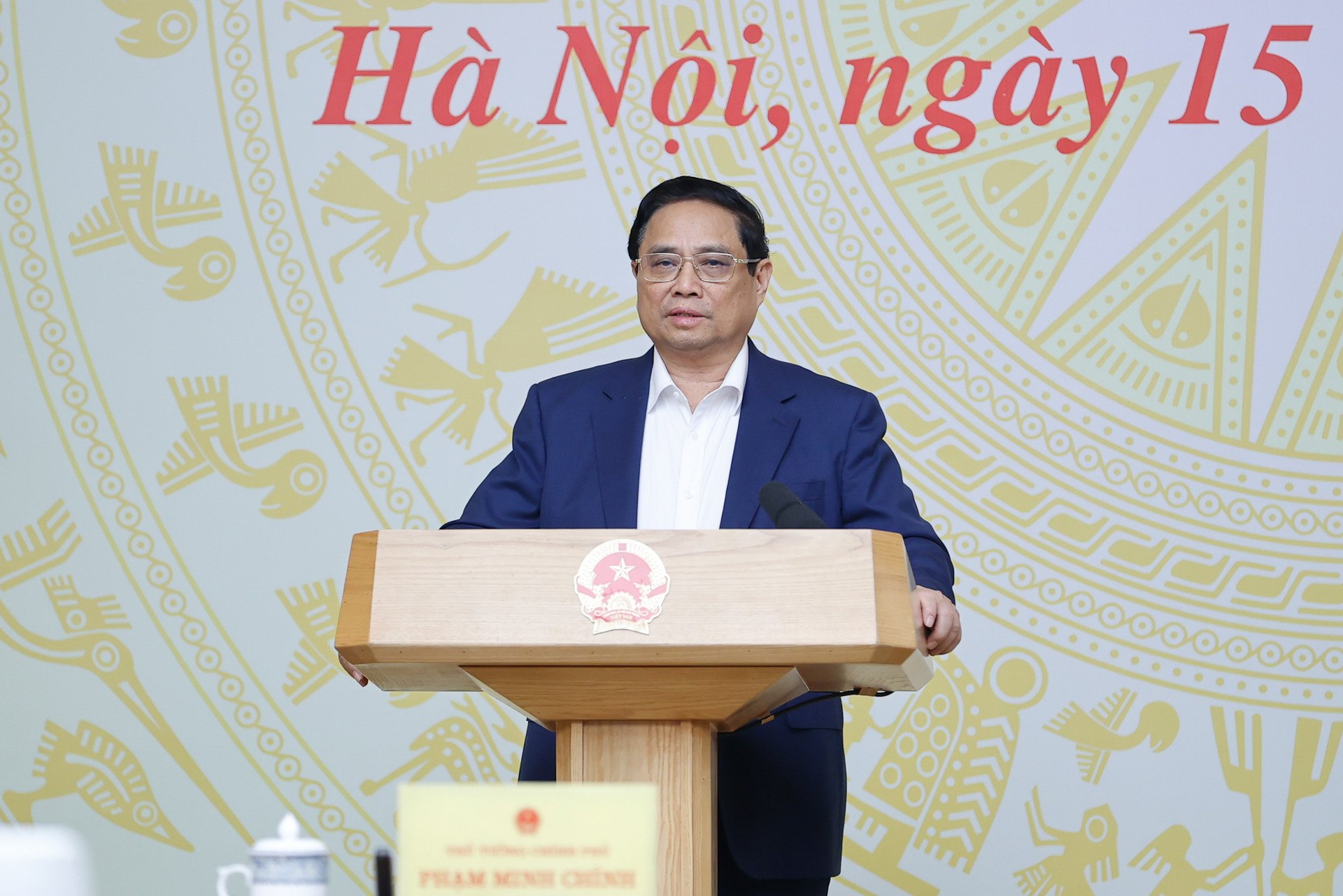
On the morning of July 15, Prime Minister Pham Minh Chinh, Head of the Government's Steering Committee for Administrative Reform (SCAR), chaired the eighth meeting of the Steering Committee.
Attending the meeting were: Deputy Prime Minister Tran Luu Quang; Minister of Home Affairs Pham Thi Thanh Tra, Deputy Head of the Standing Committee; Minister, Head of the Government Office Tran Van Son, Deputy Head of the Steering Committee; Ministers, Heads of ministerial-level agencies, Government agencies, leaders of ministries, branches, central agencies, members of the Steering Committee; Chairmen of People's Committees, Heads of the Steering Committees for Administrative Reform of provinces and centrally run cities.
The meeting focused on evaluating the results of administrative reform in the first 6 months of 2024; discussing directions and tasks for the last months of 2024 and solutions to overcome shortcomings and limitations in implementing administrative reform tasks in the coming time.
8 positive and outstanding results in the first half of 2024
Reports and opinions at the meeting unanimously assessed that administrative reform work in the first 6 months of the year achieved 8 positive and outstanding results.
Firstly, the work of directing, operating and organizing the implementation of administrative reform is methodically deployed, closely following reality, and promoting effectiveness.
The Government and the Prime Minister have issued many resolutions, directives, and telegrams urging the reform of the administrative apparatus, reform of administrative procedures, and strengthening discipline. The implementation has been deployed from the central to local levels, completing 10/12 tasks of the Steering Committee; ministries and branches have completed 400/991 tasks; and localities have completed 1,327/3,009 tasks.
In the past 6 months, 2,870 documents (ministries: 305 documents; localities: 2,565 documents) were issued to direct, urge and thoroughly implement administrative reform tasks. Government leaders, ministries, branches and localities actively participated in many dialogue forums and directly directed the removal of difficulties and obstacles. Inspection and examination of the responsibility of civil servants in performing their duties were strengthened.
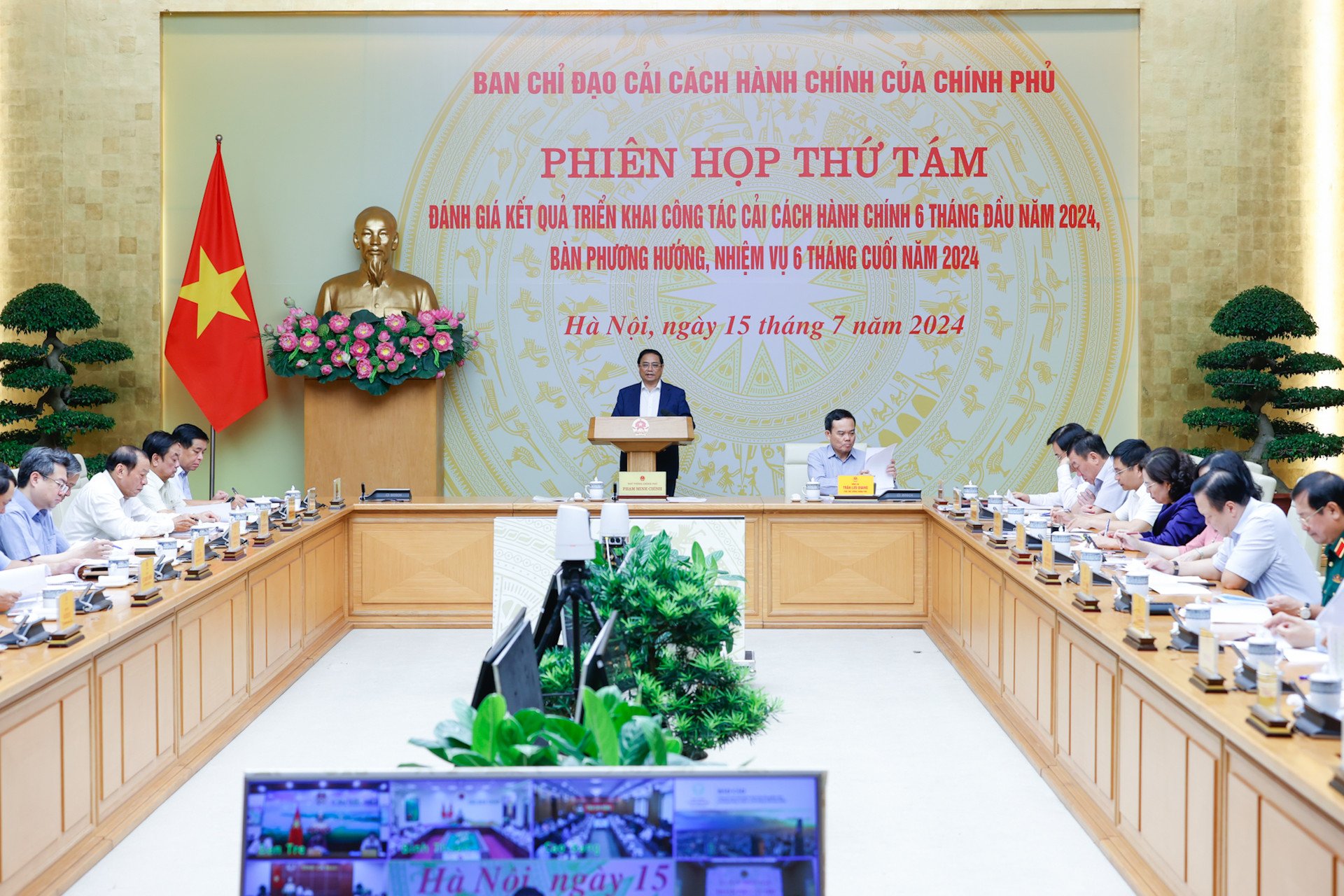
Second, institutional reform and law-making are given attention and have many innovations.
In the first 6 months of the year, the Government held 5 thematic meetings on law-making; issued 83 decrees and 8 resolutions (passed 11 proposals for law-making and 17 draft laws). Submitted to the National Assembly for permission to apply the Laws on Land, Housing, Real Estate Business, and Credit Institutions to take effect earlier than August 1, 2024. Established a Steering Committee to review and handle problems in the system of legal documents, headed by the Prime Minister.
Third, reforming administrative procedures and improving the investment and business environment has been promoted. 168 business regulations, 247 administrative procedures and citizen papers have been reduced and simplified, and 108 administrative procedures have been implemented. The Prime Minister has approved the simplification plan for 40 internal administrative procedures. Piloting the model of one-level public administrative service centers under the provincial People's Committees in Hanoi, Ho Chi Minh City, Quang Ninh, and Binh Duong has been assigned.
Fourth, organizational reform was carried out drastically and had many positive changes.
To date, 33 ministerial-level public service units have been reduced, and it is expected that in 2024, 72 public service units under the Prime Minister's authority will be reduced. Localities have reduced 10 department-level organizations under the Provincial People's Committee and 8 department-level organizations under the District People's Committee. 53 provinces and cities have reorganized 49 district-level units and 1,247 commune-level units.
Implementing staff streamlining, in the first 6 months of 2024, ministries, branches and localities reduced 3,853 people; of which, localities accounted for 3,746 people. At the same time, 30 excellent graduates and young scientists were recruited.
Establish a Steering Committee to review 20 years of implementing the Government's organizational model; establish a Working Group to review the implementation of the Law on Government Organization; prepare a dossier to propose the drafting of the Law on Government Organization (amended) and the Law on Local Government Organization (amended).
Fifth, the reform of the civil service system has many positive changes. The reform of salary policy has had positive results, officially increasing the basic salary from 1.8 million VND to 2.34 million VND from July 1, 2024, ensuring fairness, equality, harmony and stability.
Discipline and public service discipline are tightened; violations are strictly handled; in the first 6 months of the year, 139 cadres, 432 civil servants and 767 public employees were disciplined.
Sixth, public finance reform has been actively implemented. State budget revenue in the first 6 months reached 60% of the estimate, up 15.7%; about 700,000 billion VND has been accumulated from increased revenue sources and state budget expenditure savings to be used for increasing basic salaries, pensions, and subsidies from July 1, 2024; fiscal policy solutions, tax exemptions, reductions, and extensions to support people and businesses with an expected annual scale of about 200,000 billion VND.
Seventh, national digital transformation and the construction of a digital government have been implemented vigorously, effectively and substantially. The legal framework for the development of a digital government has been actively improved (10 decrees, 6 decisions and 5 circulars have been issued); national and specialized databases have been promoted; data connection, integration and sharing have developed; the provision of online public services to people and businesses has been promoted; the implementation of Project 06 has had positive results.
Eighth, some good examples are Hanoi, Da Nang, Quang Tri, Hau Giang, Binh Phuoc, Ba Ria - Vung Tau, Khanh Hoa, State Bank, Ministry of Transport, Ministry of Finance...
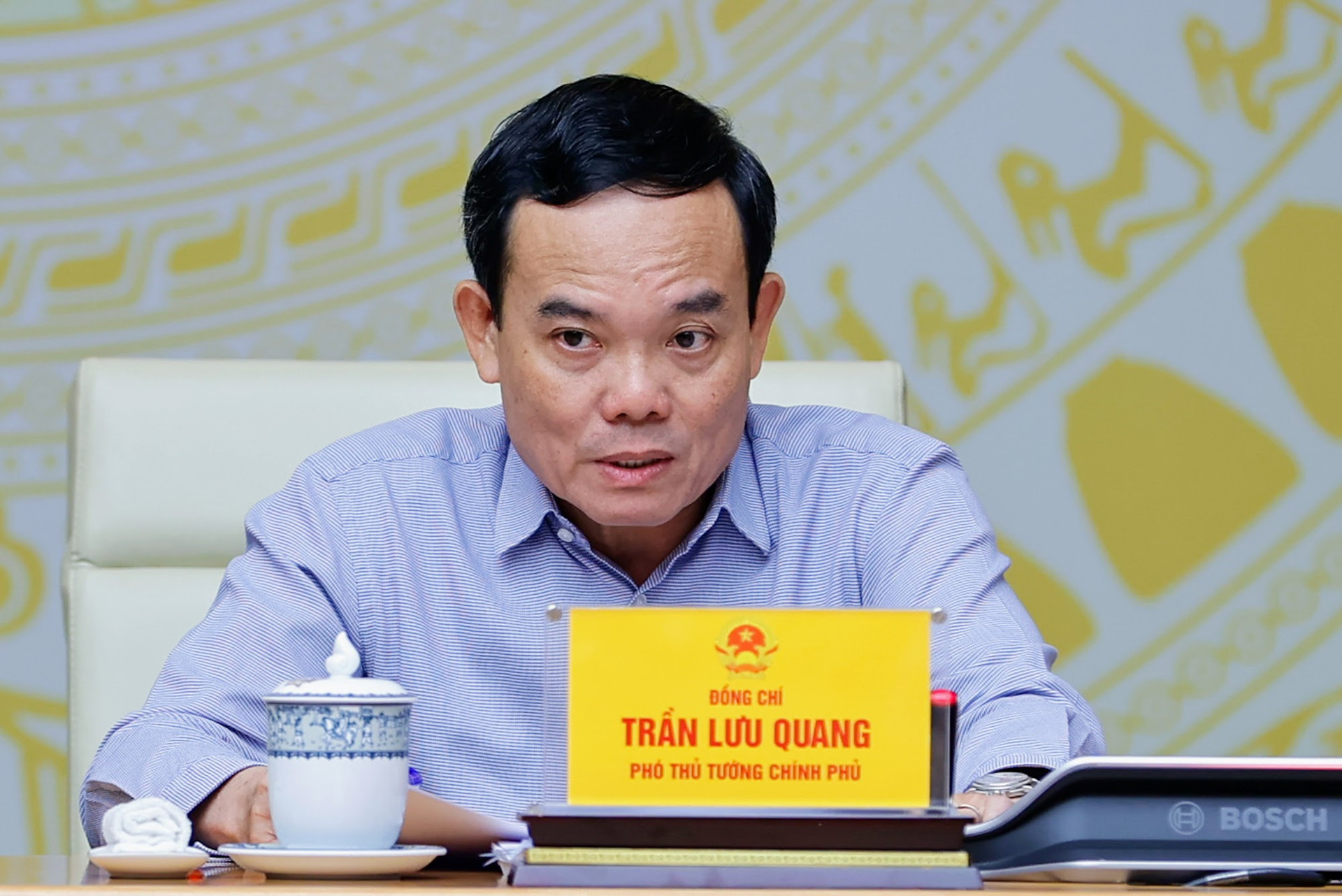
Solving legal and resource bottlenecks
In his concluding remarks, Prime Minister Pham Minh Chinh acknowledged and highly appreciated the Ministry of Home Affairs - the standing agency of the Steering Committee, for coordinating with relevant agencies to carefully prepare documents for the meeting; welcomed the very accurate, dedicated, responsible and practical comments of the delegates on each content of administrative reform; assigned the Ministry of Home Affairs and the Government Office to fully absorb the valid comments and promptly complete the Steering Committee's Conclusion Notice.
Basically agreeing with the reports and opinions on 8 outstanding and positive results in the first 6 months of the year, Prime Minister Pham Minh Chinh, on behalf of the Government, acknowledged, commended and highly appreciated the efforts, attempts and results achieved by ministries, branches and localities; the drastic direction of the members of the Steering Committee for Administrative Reform in the past time; and many positive and important contributions to the overall success of the whole country.
Pointing out the shortcomings and limitations in administrative reform work and their causes, the Prime Minister outlined a number of important lessons.
Accordingly, it is necessary to seriously implement the Party's guidelines and policies, the State's policies and laws on administrative reform. Focus on removing difficulties, obstacles and legal bottlenecks, promptly review and perfect legal regulations, mechanisms and policies to mobilize all resources for national development.
There must be high political determination, great efforts, and drastic actions in implementing administrative reform, especially by the heads of ministries, branches, and localities, to clearly identify "people, work, responsibilities, progress, and effectiveness". Taking people and businesses as the subject and center of administrative reform; identifying digital transformation as an important tool in administrative reform, especially administrative procedure reform.
Strengthen dialogue, listen and promptly detect and handle arising problems flexibly, creatively and effectively. Strengthen discipline and administrative discipline, strictly prohibit shirking and avoiding responsibility; effectively implement the reward and discipline mechanism for officials and civil servants in the performance of public duties.
Strengthen information and communication work, especially policy communication; focus on reporting good people, good deeds, good practices, and typical breakthroughs; use the good to eliminate the bad, use the positive to push back the negative; contribute to strengthening trust, creating consensus and an exciting atmosphere in the whole society.
In the coming time, the Prime Minister emphasized the viewpoint and spirit of "5 pushes" including: Stepping up the review of regulations, removing difficulties, obstacles, and bottlenecks in institutions, mechanisms, and policies to mobilize all domestic and foreign resources for development; stepping up dialogue, sharing, and handling obstacles and shortcomings for people and businesses, especially regarding administrative procedures to promote production and business, create jobs and livelihoods for people and businesses; stepping up reform of the civil service regime, strengthening discipline, order, preventing and repelling corruption and negativity; stepping up digital transformation, building a digital government, digital society, digital citizens, digitizing data and records; stepping up non-cash payments in all fields and all transactions.
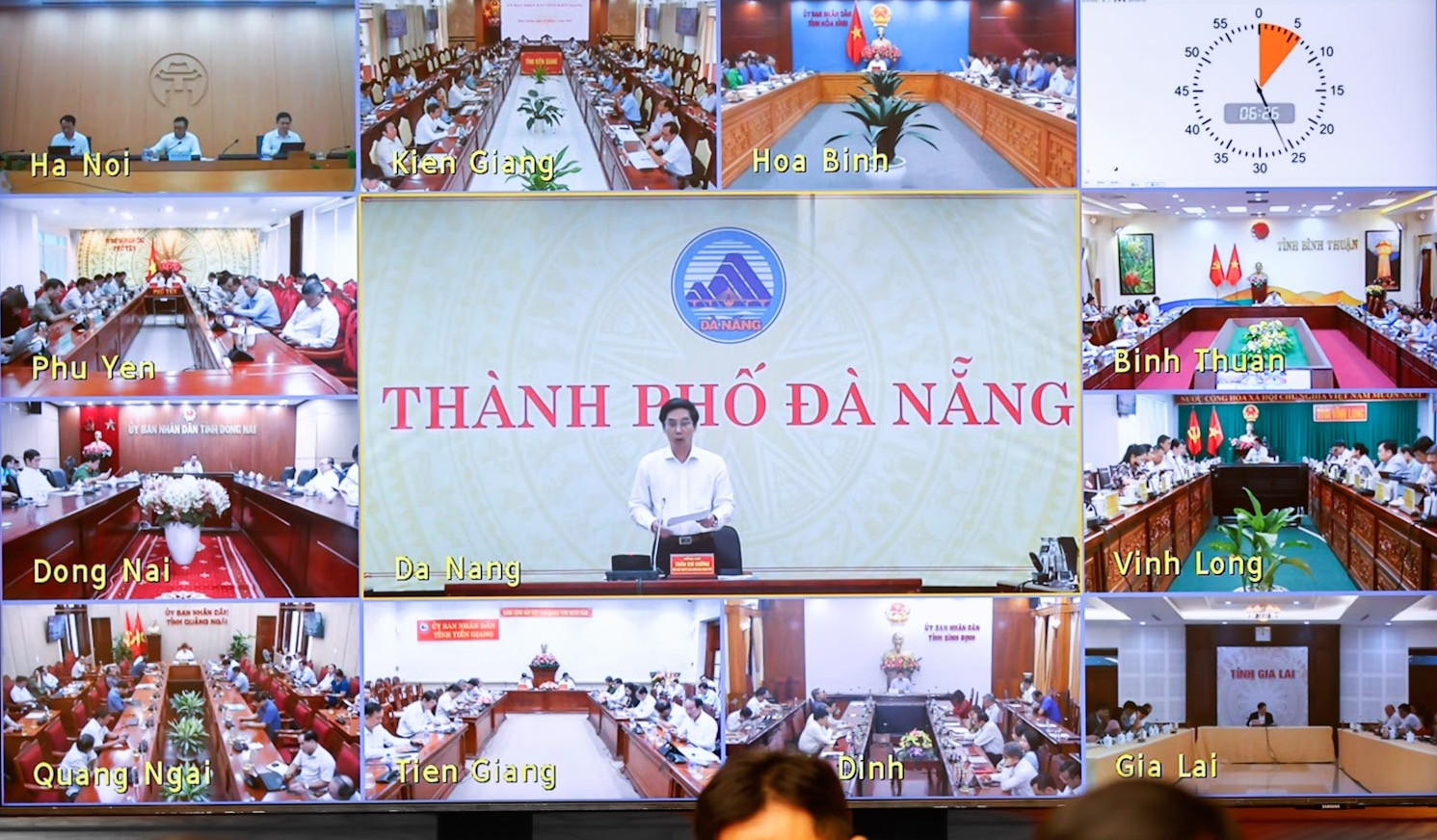
Regarding the general task, the Prime Minister requested leaders of ministries, localities, and members of the Steering Committee to urgently review and clearly identify bottlenecks that are hindering administrative reform activities, propose specific solutions to remove them; prioritize immediate resolution of hot, urgent, and pressing issues among the people.
Ministries, sectors and localities strictly implement the directions of the Government, the Prime Minister, the 2024 Action Plan of the Steering Committee and the administrative reform tasks set out in the plans of each agency and unit. Speed up the promulgation of detailed regulations, especially for laws passed at the 7th Session of the 15th National Assembly.
Step up the review and propose solutions to handle regulations that are contradictory, overlapping, inadequate, and not suitable to reality; review and propose solutions to reduce and simplify licenses related to business activities; strengthen decentralization and delegation of authority.
Focus on implementing the arrangement of administrative units at district and commune levels for the 2023-2025 period, striving to basically complete it by September 2024, ensuring organizational stability for localities to hold Party congresses at all levels in 2025. Strengthen inspection and examination to improve discipline and administrative order in the performance of public duties.
Focus on reviewing, amending, and perfecting mechanisms, policies, and improving processes and procedures to resolve legal and resource "bottlenecks" to facilitate the disbursement of public investment capital in the last months of 2024. Focus on completing the allocation of public investment capital for 2024 in July and strive to disburse over 95% of the entire year; transfer capital to places that perform well and disburse effectively.
Propose timely rewards and encouragement for groups and individuals with outstanding achievements in administrative reform in the past 6 months, and promptly criticize and draw lessons.
The People's Committees of Hanoi, Ho Chi Minh City, Binh Duong, and Quang Ninh will pilot the model of a one-level public administrative service center under the provincial People's Committees according to the one-stop, one-stop mechanism, from September 2024 to the end of 2025.
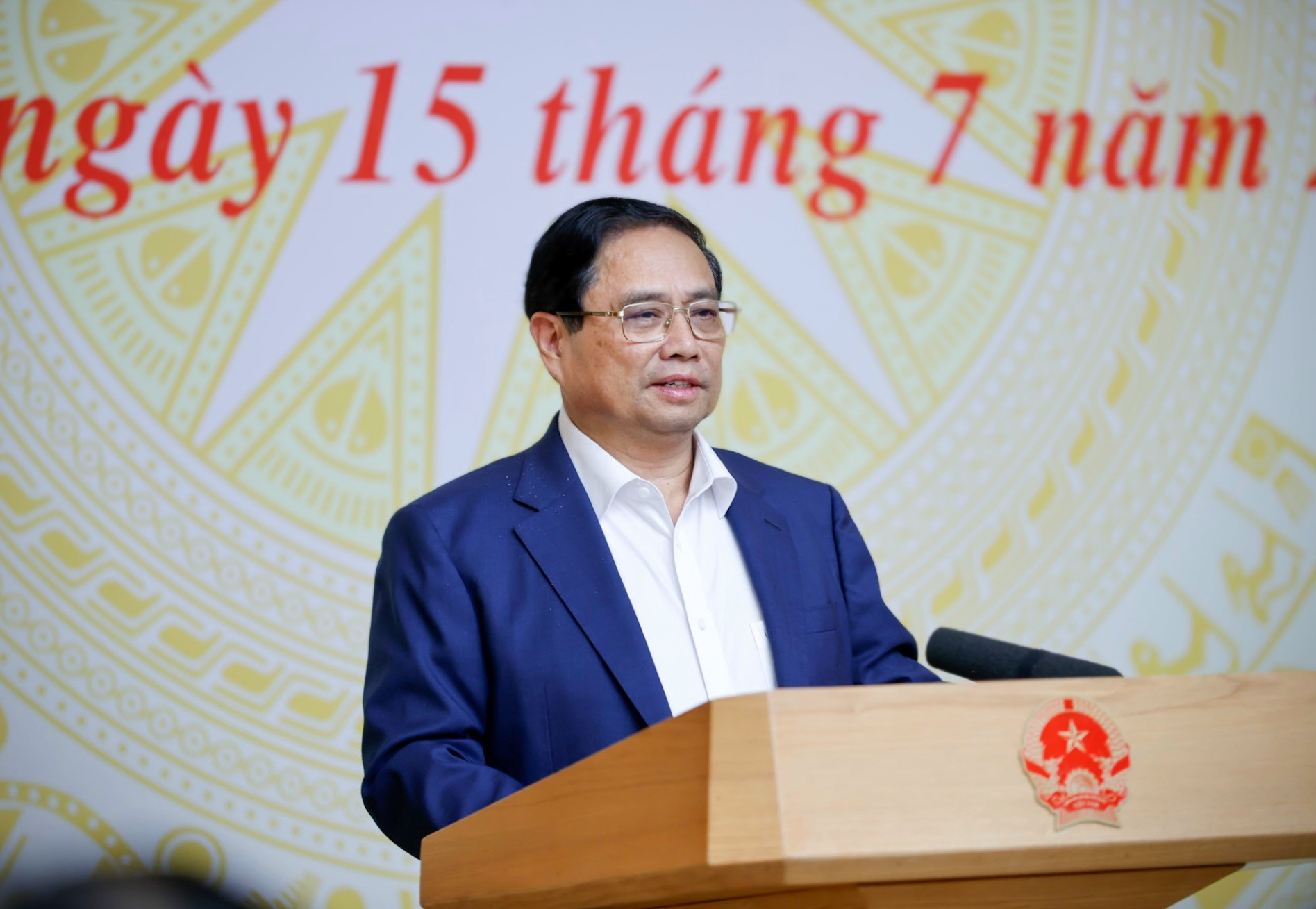
Regarding specific tasks, the Prime Minister assigned the Ministry of Home Affairs to review to fully institutionalize and ensure consistency with Regulation No. 148-QD/TW dated May 23, 2024 of the Politburo on the authority of the head in temporarily suspending the work of subordinate officials in necessary cases or when there are signs of serious violations of Party regulations and State laws, and report to the Government in the third quarter of 2024.
Organize, guide and urge ministries, branches and localities to complete the arrangement of public service units and district and commune-level administrative units in September 2024.
Urgently develop and complete the dossier to propose amendments and supplements to the Law on Cadres and Civil Servants, the Law on Public Employees; the Law on Government Organization, the Law on Local Government Organization; and the Decree on policies to attract and employ talented people in State agencies.
Implement the contents of salary policy reform according to Conclusion No. 83-KL/TW dated June 21, 2024 of the Politburo and Resolution No. 142/2024/QH15 of the 7th Session, 15th National Assembly; promptly urge and guide the removal of difficulties and shortcomings in the implementation process.
The Ministry of Justice has performed well its duties as the standing agency of the Steering Committee for reviewing and handling difficulties in the system of legal documents; advising and assisting the Prime Minister's Working Group in reviewing legal documents.
Promptly submit to the Prime Minister for promulgation a Decision on the list and assign the agency in charge of drafting documents detailing the implementation of laws and resolutions passed at the 7th Session; urge the completion in July of the promulgation of documents guiding the Land Law, Housing Law, Real Estate Business Law and Credit Institutions Law, which will take effect from August 1.
The Ministry of Finance continues to research and propose measures to resolve difficulties in implementing support packages for people and businesses in production and business; perfecting institutions and policies for effective public finance and public assets; promoting digitalization of revenue management and use of electronic invoices.
The Government Office urges and guides ministries, branches and localities to carry out administrative procedure reform according to the direction of the Government and the Prime Minister.
The Ministry of Public Security organizes the effective implementation of the transition to using VNeID as the only account in performing online public services; researches and expands utilities on the VNeID application to serve citizens when handling work.
The State Bank of Vietnam effectively deploys the connection and exploitation of population information in the National Population Database, chip-embedded citizen identification cards, electronic identification accounts to serve online public services, credit operations, and prevent and combat illegal activities, fraud, and money laundering.
With the spirit of "not saying no, not saying difficult, not saying yes but not doing", high determination, great efforts, drastic and effective actions, the Prime Minister requested ministries, branches, localities, and members of the Steering Committee to uphold the sense of responsibility, promote the existing momentum, continue to "keep the fire burning", immediately implement tasks and solutions to promote administrative reform in a substantive manner, bringing about practical, clear, measurable results, reducing costs for people and businesses, improving the competitiveness of products, goods and the economy, contributing to promoting the successful implementation of socio-economic development goals and tasks in 2024 and the following years.
Source: https://baotainguyenmoitruong.vn/thu-tuong-5-day-manh-trong-cai-cach-hanh-chinh-de-huy-dong-moi-nguon-luc-cho-phat-trien-376724.html


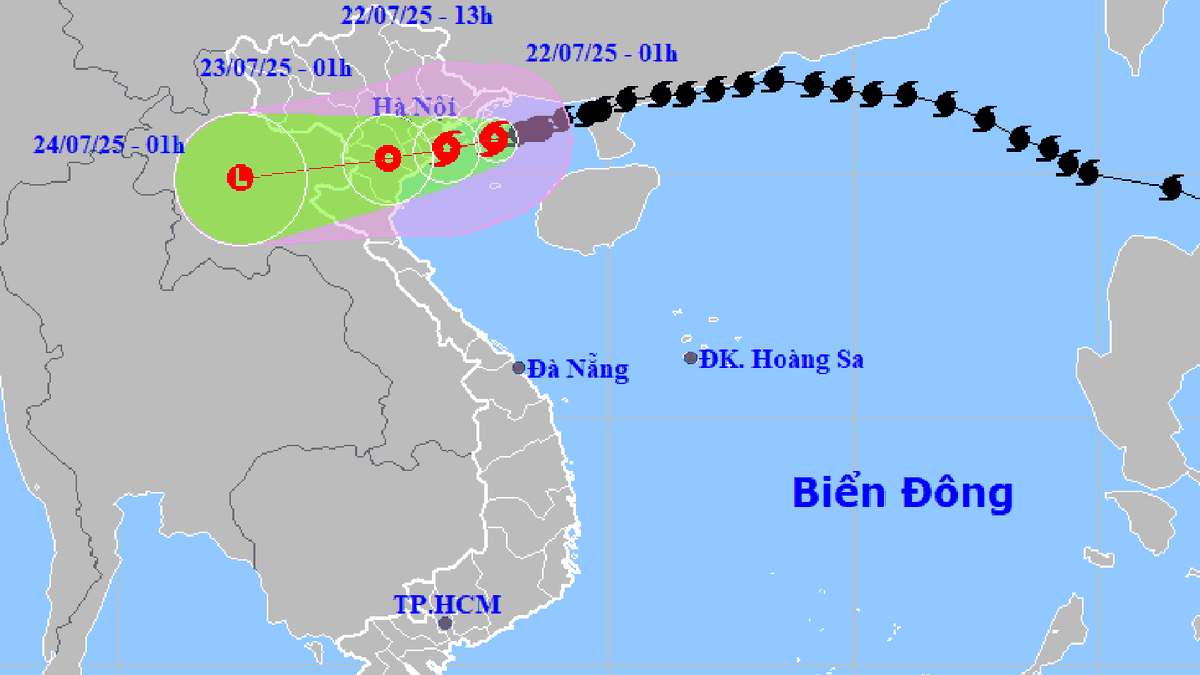

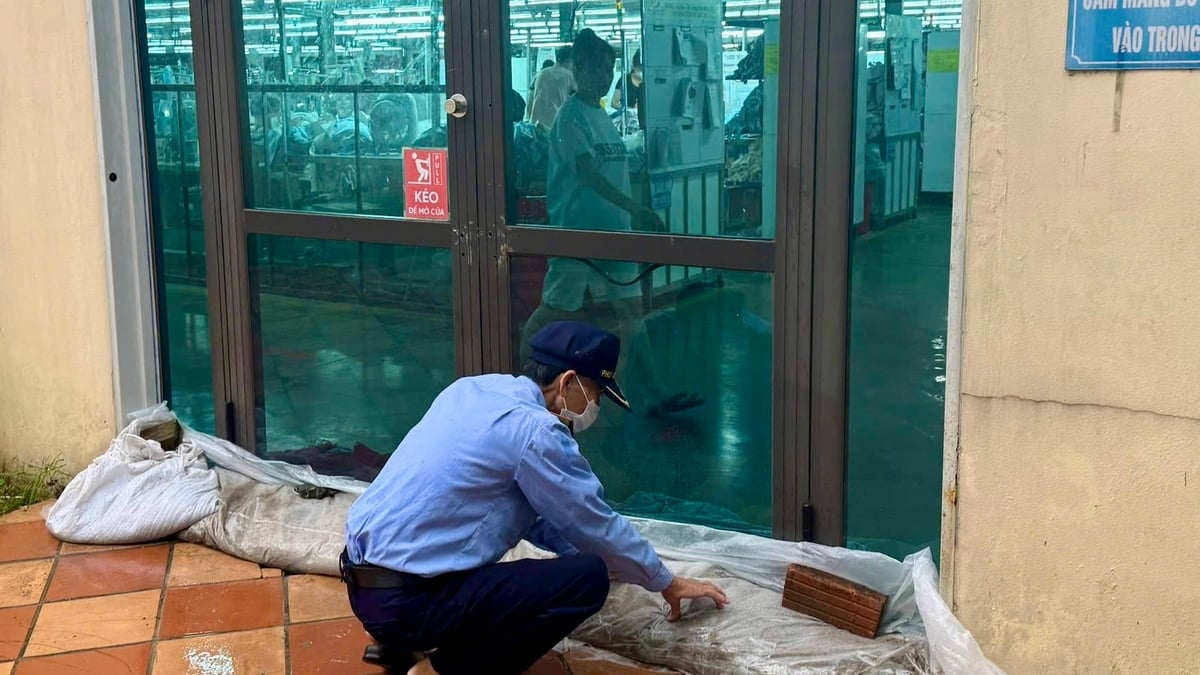



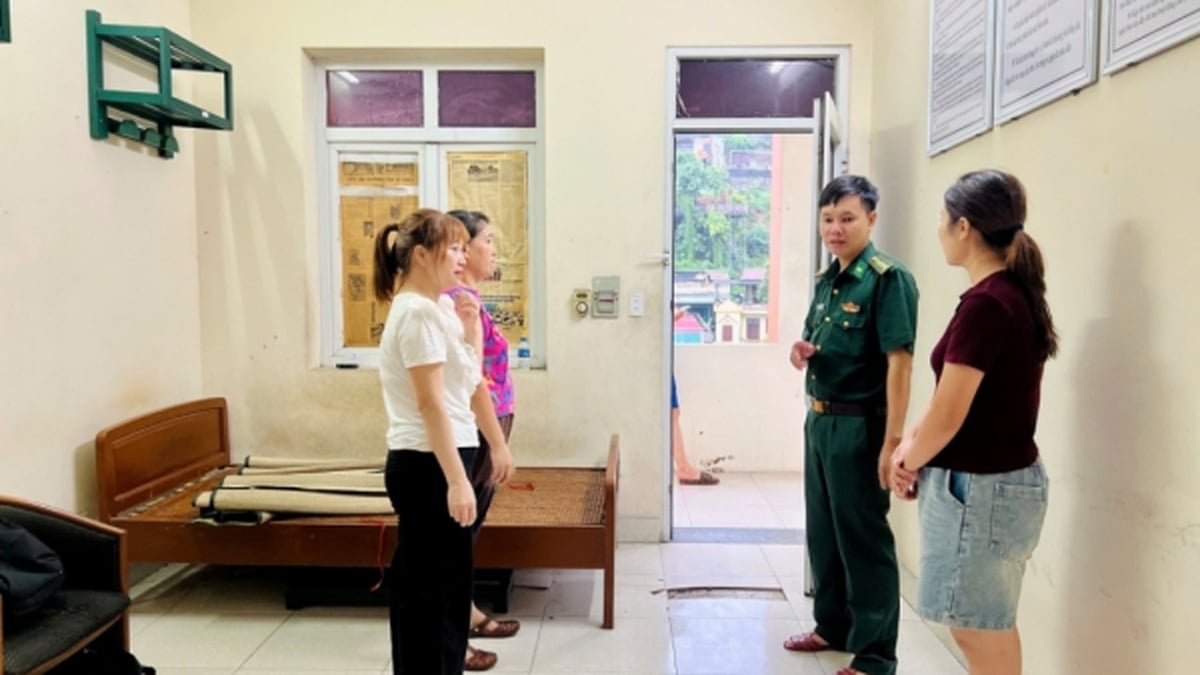


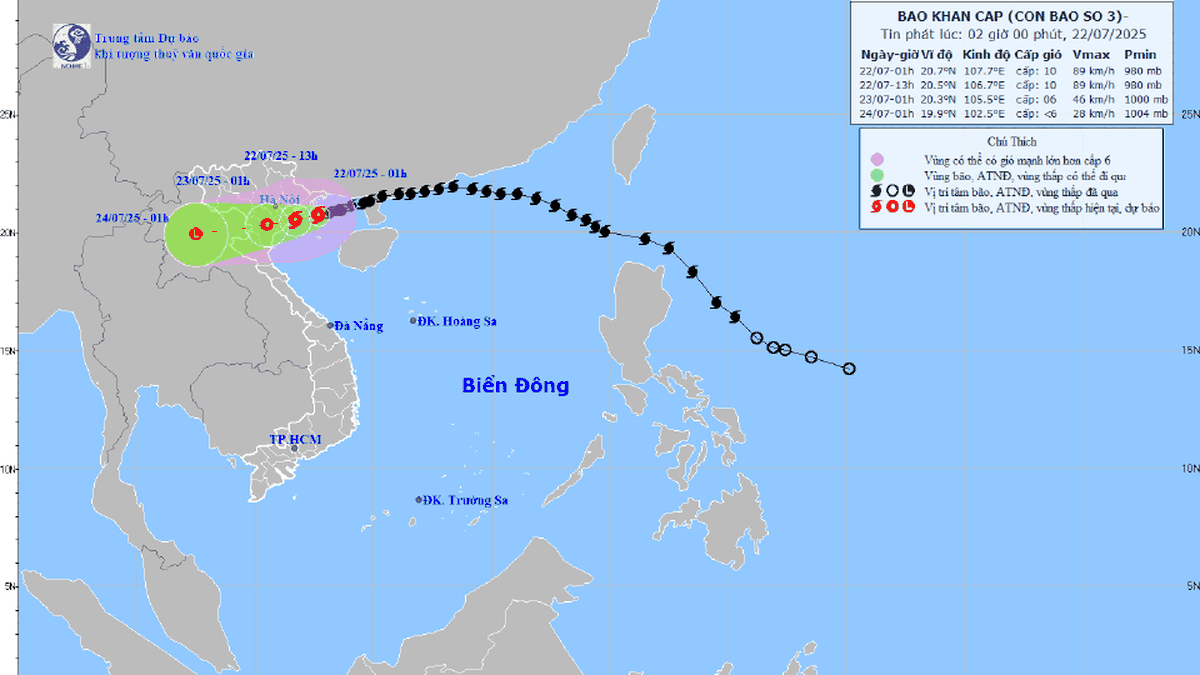



















![[Photo] National Assembly Chairman Tran Thanh Man visits Vietnamese Heroic Mother Ta Thi Tran](https://vphoto.vietnam.vn/thumb/1200x675/vietnam/resource/IMAGE/2025/7/20/765c0bd057dd44ad83ab89fe0255b783)






































































Comment (0)